MCAT Physics and Math - Mathematics
1/35
Earn XP
Name | Mastery | Learn | Test | Matching | Spaced | Call with Kai |
|---|
No study sessions yet.
36 Terms
Scientific notation
method of writing numbers that takes advantage of powers of ten
powers of ten
any of the integer powers of the number ten
significand /coefficient / mantissa
the number multipled by the power of ten in scientific notation
must be a number with an absolute value in the range [1,10)
exponent
the number of times ten is multiplied into the significand in scientific notation
can be any whole number (positive, negative, zero)
Significant figures
indication of our certainty of a measurement and help avoid exceeding that certainty when performing calculations
leading zeroes
zeroes to the left of the first nonzero digit; insignificant
trailing zeroes
zeroes to the right of the last nonzero digit; can be significant or not, depending on precison of measurement
addition and subtraction
decimal points are maintained rather than maintaining significant figures
multiplication and division
maintain as many digits as possible throughout the calculations; then round to the least number of significant digits in any of the given values
multiplication: round one number up and one number down to compensate
divison: round both numbers in the same direction to compensate
Exponents
X0 = 1
XA × XB = X(A + B)
XA / XB = X(A - B)
(XA)B = X(A × B)
(X / Y)A = XA / YA
X-A = 1 / XA
XA/B = B√XA
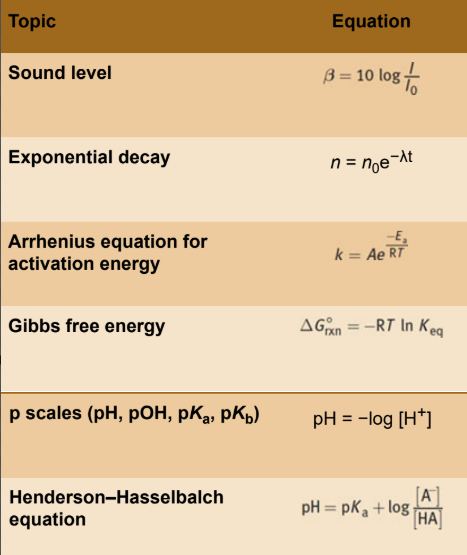
approximate square roots
determining which two perfect squares it falls between OR divide the number given to you by known squares
scientific notation: make exponent divisible by 2 to square
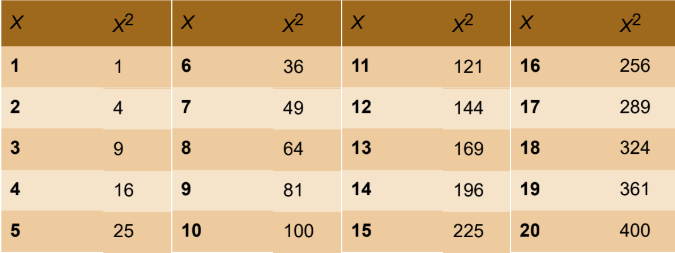
√2
approx 1.414
√3
approx 1.732
Logarithms
pX = -log X
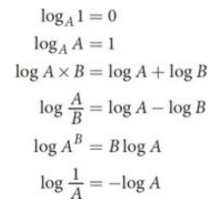
Euler’s number (e)
about 2.718
common logarithms
Base-ten logarithms (log10)
natural logarithms
logarithms based on Euler’s number (loge or ln)
convert between natural logarithms and common logarithms
log x ≈ ln x / 2.303

Estimating Logarithms
use scientific notation
log (n × 10m) ≈ m + n/10

right triangle
triangle with one right 90° angle
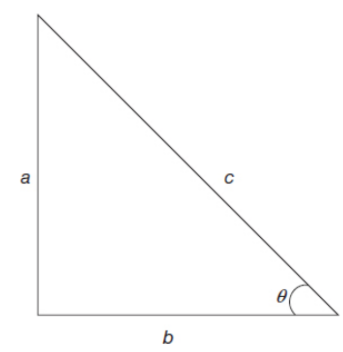

Sine
ratio between the side opposite the angle of interest and the hypotenuse


Cosine
calculated as the ratio between the side adjacent to the angle of interest and the hypotenuse


Tangent
calculated as the ratio between the side opposite the angle of interest and the side adjacent to the angle of interest

inverse trig functions
use the calculated value of sine, cosine, or tangent, and yield a numerical value for the angle of interest
sin−1 or arcsin
cos−1 or arccos
tan−1 or arctan
Special Right Triangles
sides:
3-4-5
5-12-13
angles:
30−60−90
1 - √3 - 2
45−45−90
1 - 1 - √2
Common Trigonometric Ratios
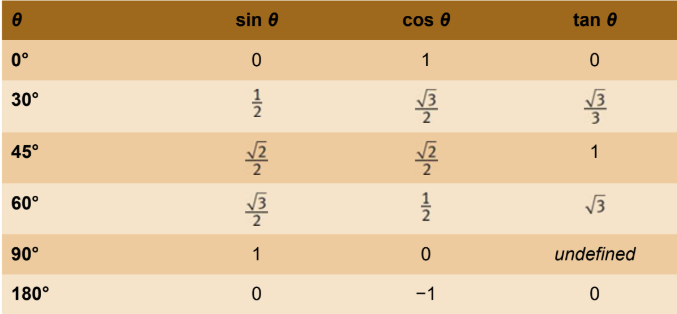
direct relationships
increasing one variable proportionately increases the other; as one decreases, the other decreases by the same proportion
inverse relationships
increase in one variable is associated with a proportional decrease in the other
Metric Prefixes
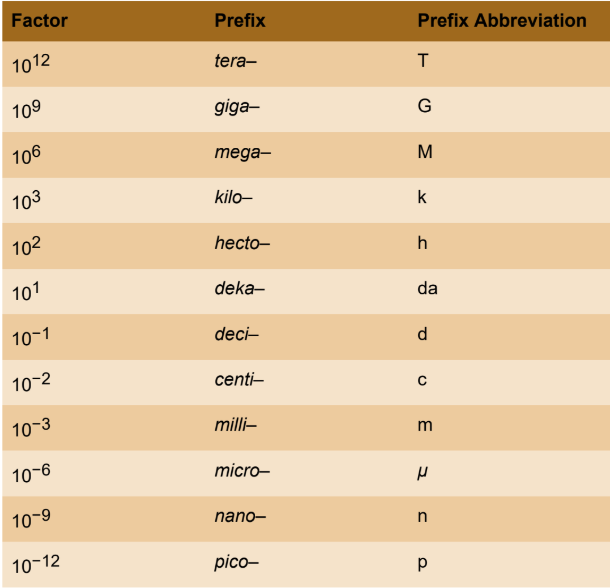
Common Conversion Factors
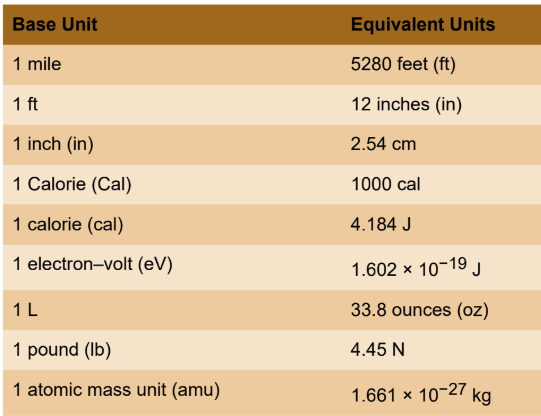
Temperature conversion
9 degrees change in F for every 5 C/K
freezing point
in F = 32
in C = 0
in K = 213.15

dimensional analysis
the units of the calculated answer must match the units of the answer choices and follow throughout calculations
system of equations
needs at least as many equations as there are variables
three methods:
substituting one variable in terms of the other
setting equations equal to each other
manipulating the equations to eliminate one of the variables
substitution
solve for one variable in one of the equations, and then insert this term into the other equation
Setting equations equal
specialized case of substitution; solve for the same variable in both equations and then set the two equations equal to each other
elimination
multiply or divide one (or both) of the equations to get the same coefficient in front of one of the variables in both equations
then, add or subtract the equations as necessary to eliminate one of the variables